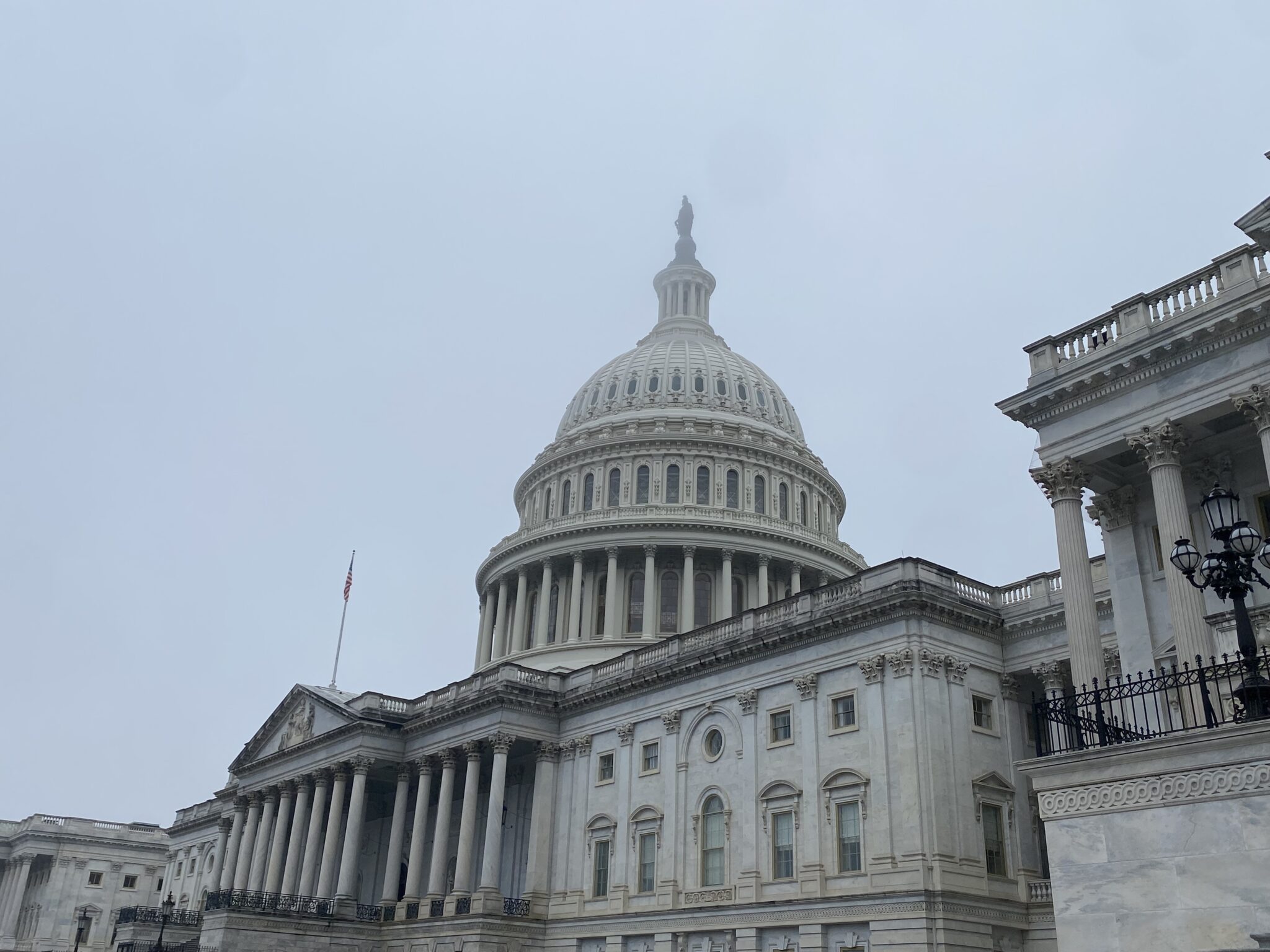
The U.S. Capitol building in Washington, D.C., is pictured amid fog on Tuesday, December 10, 2024. (Photo by Jennifer Shutt/States Newsroom)
Members of Congress are poised to receive their first pay raise since 2009 if they pass a massive stopgap spending bill designed to prevent a partial government shutdown. A 1989 law mandates automatic annual cost-of-living adjustments for Congress, but every spending bill since 2009 has included a provision blocking these raises, according to a September report by the nonpartisan Congressional Research Service. This 1,500-page bill, released Tuesday evening and intended to fund the government through mid-March, omits this blocking provision, as first reported by Bloomberg Government.
Members of Congress currently earn at least $174,000 annually, with higher salaries for leadership positions. Cost-of-living increases are calculated based on private-sector wages; the maximum allowed for next year is 3.8%, raising the base salary to $180,600, according to the CRS report. The CRS also notes that members have effectively experienced a 31% pay decrease since 2009 when accounting for inflation. Historically, Congress has blocked automatic raises due to their unpopularity with voters.
However, the absence of a pay raise block, coupled with another provision granting members access to the Federal Employees Health Benefits Program, has prompted opposition. Maine Democrat Jared Golden, known for his populist image in a swing district, announced he would vote against the entire funding bill (a continuing resolution, or CR). In a Wednesday statement, Golden criticized the inclusion of these “perks,” arguing that Congress should focus on raising Americans’ wages and lowering healthcare costs, not granting themselves benefits.
This pay raise is particularly controversial given the upcoming Republican takeover of government branches and their plan to cut federal spending by $2 trillion. Billionaires Elon Musk and Vivek Ramaswamy, tasked with recommending these cuts, have urged opposition to the stopgap bill, with Musk incorrectly citing a 40% pay increase as a reason.
Despite largely maintaining existing federal spending levels, the bill includes $100 billion for disaster relief, full funding for the Francis Scott Key Bridge’s reconstruction, and a provision permitting year-round sales of a gasoline blend containing up to 15% ethanol. Lawmakers must pass the bill before midnight Friday to avoid a partial government shutdown.
Last updated 1:26 p.m., Dec. 18, 2024
by Jacob Fischler, Minnesota Reformer
December 18, 2024
(The following text is boilerplate information about the Minnesota Reformer and its publishing guidelines and should be included only if relevant to the context of where this rewritten text will be used.)

